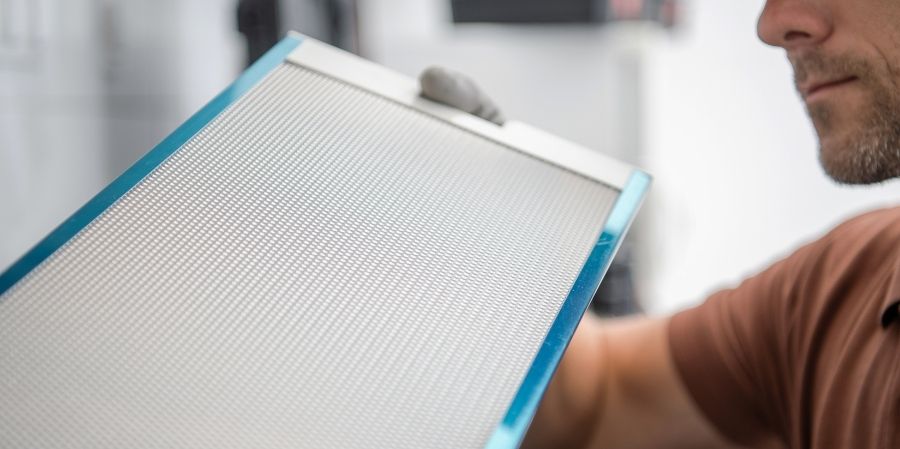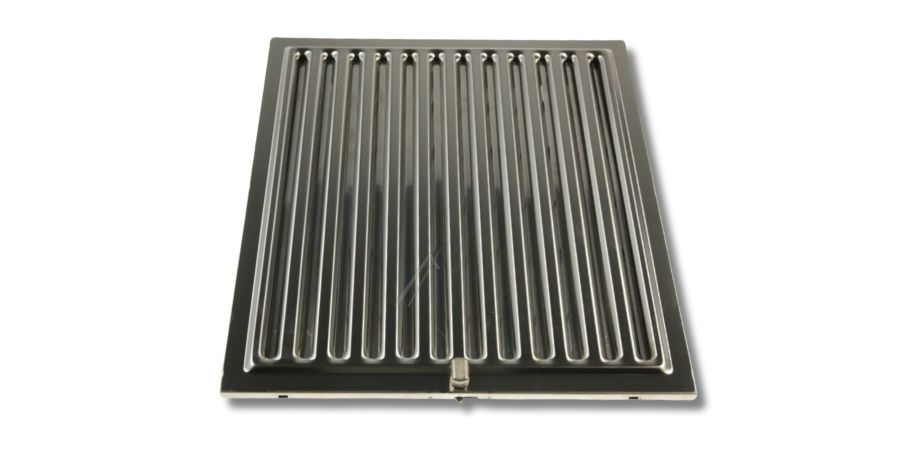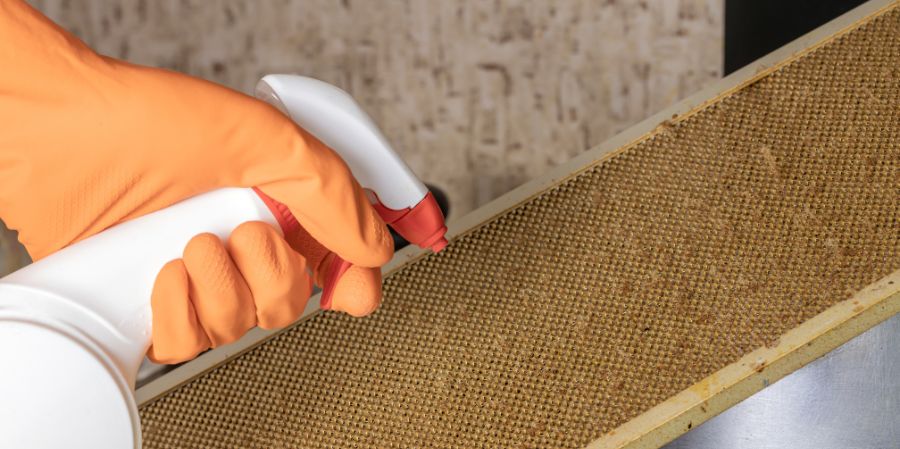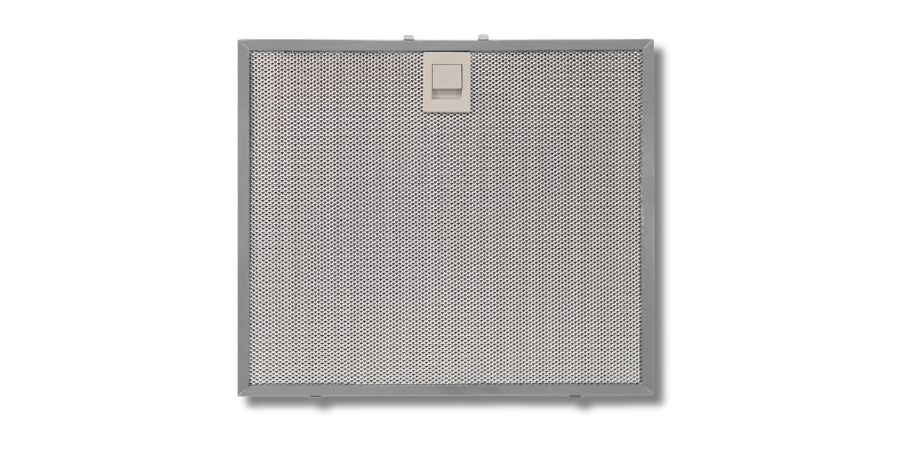- - Updated at
- Tiziano B.
- Guides
- 3106 views
If you're a DIY enthusiast and enjoy deepening your knowledge of various components, particularly those in kitchen hoods, then you're in the right place. I've already discussed how metal filters work in another article, but here I'd like to explain in more detail how these filters are made and what enables them to capture grease and oil vapors effectively.
As you may already know, metal filters for kitchen hoods play a crucial role in trapping grease and oil particles released during cooking, thereby protecting the motor and maintaining the hood's efficiency.
Below, I'll explain in detail their composition, materials, types, and how they work.
Let's get started!
Materials and Structure of Grease Filters
Grease filters, also known as metal filters, are commonly made from aluminum or stainless steel (inox).
Aluminum is widely used for its lightness and resistance to corrosion, while stainless steel is chosen not only for its greater robustness and durability but also for aesthetic reasons, as it gives the hood a more professional and refined appearance.
These filters consist of multiple layers, which may be metal meshes or lamellas, through which the extracted fumes pass. The labyrinth design of the meshes is essential for trapping grease and oil particles within the filter, preventing them from reaching the hood’s motor.
To go into more detail, a typical aluminum filter comprises several layers of overlapping metal mesh. The number of layers can vary depending on the brand and model, but generally, there are around 3-5 layers. Each layer serves a specific function, and not all meshes have the same width or hole shapes:
- The outermost layers tend to have wider meshes, capturing larger particles.
- The inner layers, on the other hand, have finer meshes to trap smaller, thinner grease particles.
The thickness of aluminum filters can vary, usually ranging from 8 mm to 10 mm, depending on the filter's structure and efficiency.

What Types of Metal Filters Exist?
Now, I’d like to explain in more detail the two main types of metal filters for kitchen hoods: mesh filters and baffle (or labyrinth) filters. Each type has different characteristics and uses.
Baffle (or labyrinth) Filters
These consist of a series of slanted baffles positioned at regular intervals, creating a maze-like pathway. These filters, also known as labyrinth filters, are often used in professional kitchens, such as in restaurants. Their structure allows them to trap a larger amount of grease than mesh filters, making them ideal for heavy-duty use.
The baffle design also facilitates the easy drainage of grease, reducing the risk of clogging.

How Do Metal Filters Retain Grease?
When the hood draws in fumes and vapors produced during cooking, the air passes through the metal filters. Their mesh or baffle structure traps grease while the purified air continues on its path.
In labyrinth filters grease condenses on the metal surfaces and is trapped within the channels, preventing it from reaching the motor and reducing the risk of clogging.
This process not only improves air quality but also prevents grease buildup in the hood's ducts, which could pose a fire hazard or reduce the hood's efficiency.
Maintenance and Longevity of Metal Filters
Metal filters are considered reusable and, if properly maintained, can last a long time. Unlike charcoal filters, which need periodic replacement, metal filters don’t have an actual expiration date.
To ensure their longevity and efficiency, however, remember to perform regular maintenance: clean them every 1-2 months, depending on the hood’s usage. You can wash them by hand or in the dishwasher; in the latter case, a low-temperature cycle is recommended to avoid deformation.
If you don’t clean the filters regularly, a significant amount of grease can accumulate, posing a serious safety risk in the kitchen: not only will they fail to effectively extract air and vapors, but during cooking, heat can cause the trapped grease in the filters to melt and drip down. These droplets could contaminate the food below or, worse, cause a fire, especially when using gas cooktops.

What Happens If I Remove or Break the Metal Filters?
Removing the hood filters without replacing them, thus leaving a “gap” between the hood’s core and the stovetop, severely compromises the appliance's functionality. The main consequences are:
- Grease is no longer filtered and accumulates in the ducts, on the motor, and on kitchen surfaces;
- The hood loses efficiency and can no longer effectively extract fumes, vapors, and moisture, leading to their buildup in the environment;
- The risk of fire increases due to direct contact with oils and grease, which may drip directly onto the burners.
For these same reasons, if a filter breaks, it’s essential to replace it, as a damaged filter cannot properly trap grease, leading to the previously mentioned consequences and causing irreversible damage to the hood’s motor.
What to Do If You Can No Longer Find the Right Filter for Your Hood?
If you’re unable to find a suitable metal filter for your hood, or if the manufacturer has gone out of business, there are several options you can consider:
- Contact specialized retailers in universal replacement parts: There are metal filters compatible with most hoods, regardless of the brand.
- Purchase custom-made filters: Some retailers offer custom cutting services to tailor the filters to the specific dimensions of your hood.
- Seek professional advice: A specialized technician can help you find a compatible solution, possibly suggesting an alternative filtration system.
Seek Assistance from Filtro Cappa
If you need to replace metal filters because they are too worn, or if you want consultation on specific issues related to hood efficiency, Filtro Cappa is here for you!
On our e-commerce site, you’ll find a wide selection of grease metal filters from various brands, both original and compatible. We also offer filters for older or obsolete hood models, and if you don’t find what you’re looking for right away, we’re committed to finding it for you!
→ IMPORTANT: Be sure to have your hood’s model number and serial number at hand to correctly identify the necessary filters and replacement parts. Then, enter what you need in the search bar and quickly find the replacement that’s right for you!
For personalized consultation or assistance, contact us easily via WhatsApp or email.



